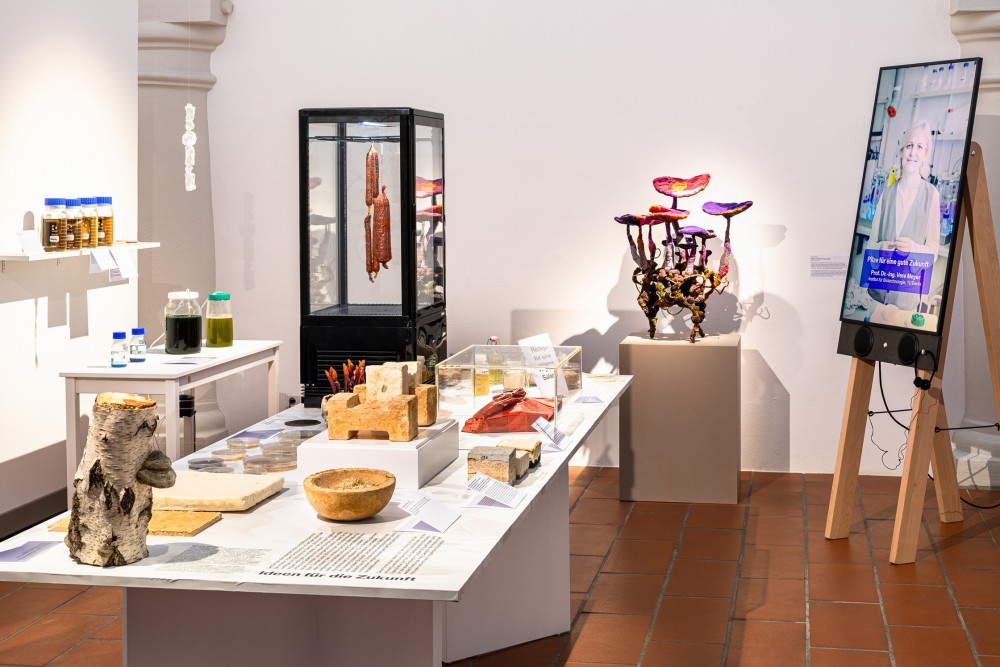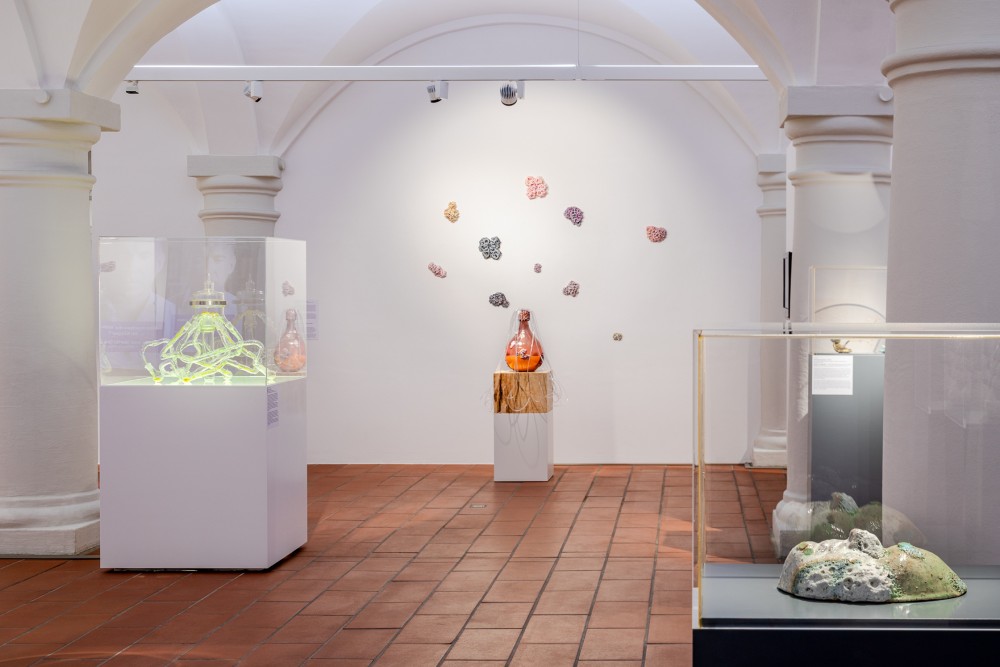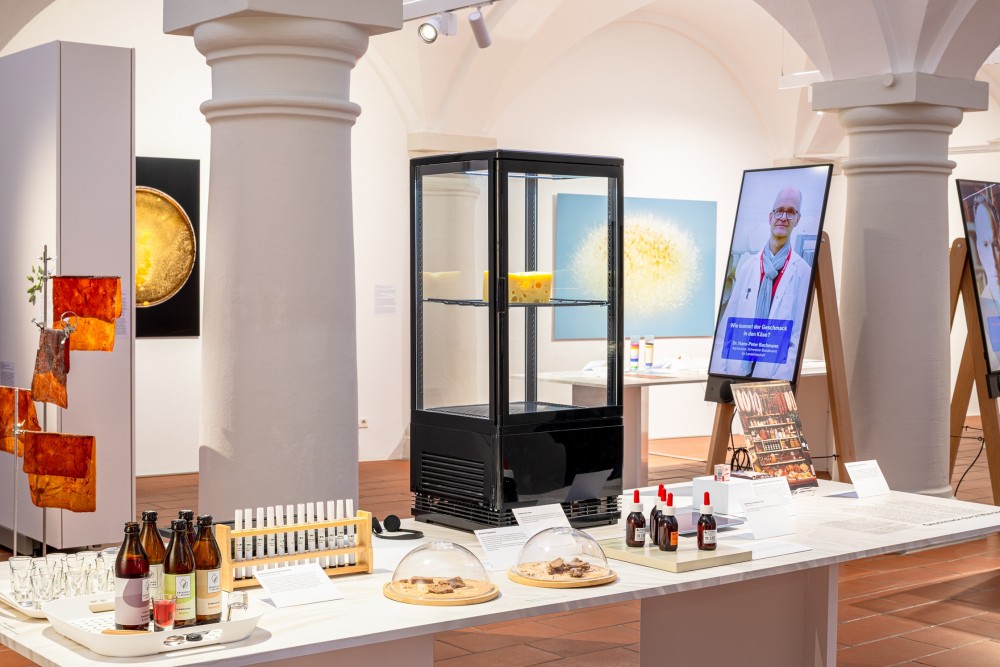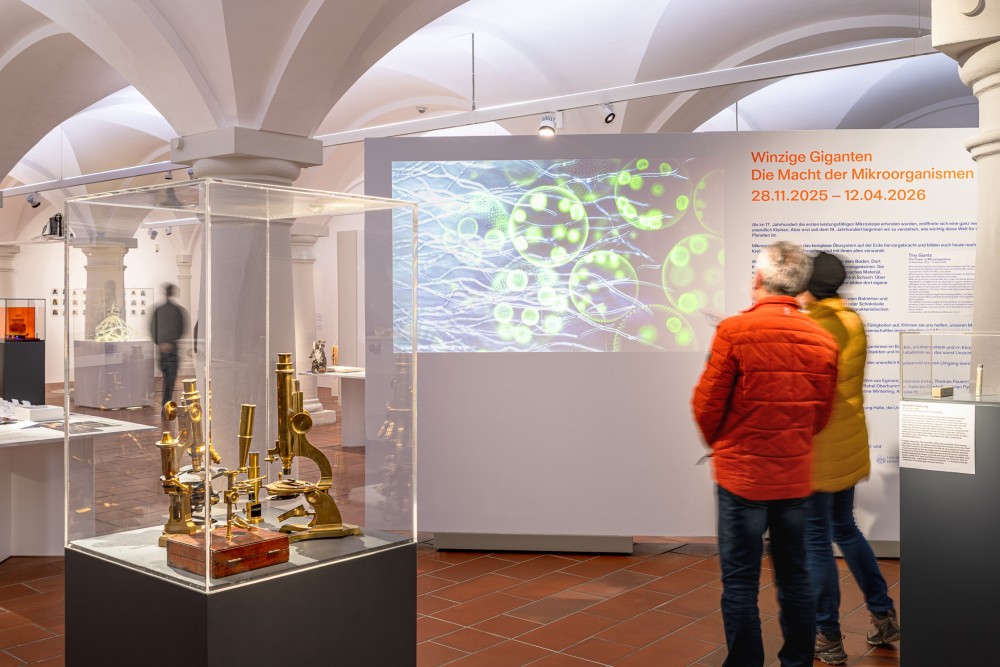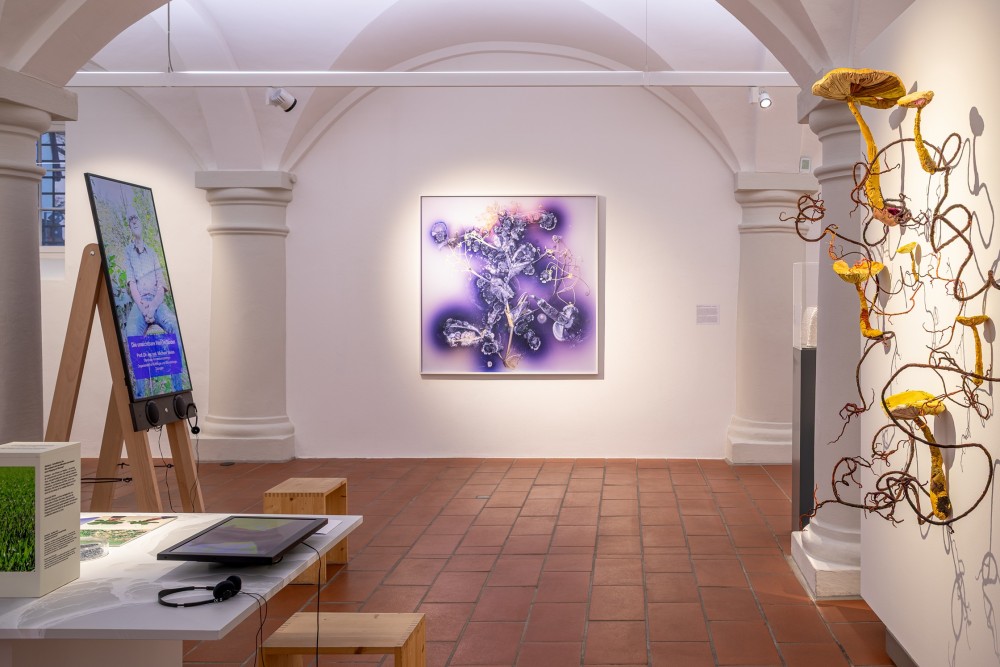Open from 10:00
De
Tiny Giants
The power of microorganisms
28.11.2025 – 12.04.2026
When the first powerful microscopes were invented in the 17th century, a whole new world opened up: the world of the infinitely small. But it was not until the 19th century that we began to understand how extremely important this world is for life on our planet.
Microorganisms have created the complex ecosystem on Earth and still form the backbone of nature's cycle today. We humans are related to all of them.
When we grow food, we work with the soil. There we find an almost infinite variety of microorganisms. They perform complex functions, decompose organic material, make nutrients available and keep pathogens at bay. They enter our bodies through food and form their own ecosystems there.
We have been cooperating with certain bacteria and fungi for a long time, for example to make bread and beer, yoghurt or chocolate. These foods only acquire their characteristic taste through their metabolic processes.
Bacteria, fungi and algae have some amazing abilities. Can they help us reduce our waste and halt climate change? Many scientists are working with microorganisms to find solutions to current and future problems.
The exhibition provides insights into the workings of microorganisms in soil, food and the body, and presents current research. Photos, objects and installations make the otherwise invisible visible.
Above all, however, numerous works of art illustrate the world of the infinitely small and how we deal with it.
Participating artists:
Selin Balci, Anne Carnein, Anna Dumitriu & Alex May, Wim van Egmond, Dominik Einfalt, Thomas Feuerstein, Edgar Lissel, Maya Minder, Mellissa Monsoon, Kathrin Linkersdorff, Rahel Oberhummer, Gabriela Oberkofler, Helen Pynor, Pipilotti Rist, Chloé Rutzerveld, Sam Taylor-Johnson, V. meer, Susanne Winterling, Anicka Yi
The exhibition is a collaboration with Museum Mühlerama, Zurich.
Wissenschaftliche Begleitung:
Agroscope Bern, Helmholtz Zentrum für Umweltforschung Hale, die Universitäten Hohenheim, Tübingen, Ulm, Wien und Zürich, TU Berlin und TU Graz, ETH Zürich, WSL Birmensdorf
Mit freundlicher Unterstützung von:
Förderverein Museum Brot und Kunst e. V.

